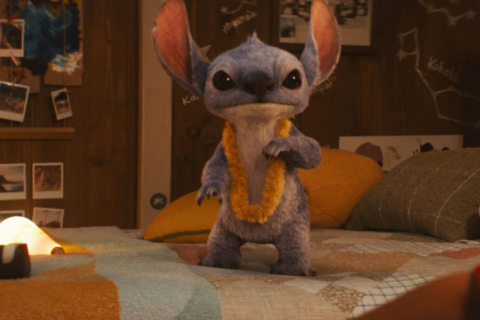More than two minutes of LGBT content have been scrubbed from the biopic of British rock band Queen, “Bohemian Rhapsody,” for the Chinese audience, including scenes of two men kissing and the word “gay.”
The award-winning film, which opened in China on March 22, portrays the life and career of Queen front man Freddie Mercury, an LGBT icon who died of AIDS-related illnesses at the age of 45.
In 2016, Chinese censors banned the portrayal of “abnormal sexual behavior,” including gay and lesbian relationships in TV and online shows.
Consequently, some members of the LGBT community have called the release of “Bohemian Rhapsody” in China a victory for their community, particularly considering that only a limited number of Western films are screened in the country each year.
But Chinese documentary filmmaker and LGBT activist Fan Popo said it was “dangerous” to view the release of the film, which has has grossed $890 million at the global box office, as a win.
“If everyone becomes content with this kind of ‘victory,’ then the whole world will always submit to authority, creators won’t be respected and there will be no protection for the interests of the audience,” he said.
Here are six LGBT moments from the film that have been censored for the world’s second largest movie market:
1. Close-up of a male crotch
Early in the movie, the BBC producer managing Queen’s live performance on the television channel gets angry after the camera zooms in on Mercury’s flamboyant pelvic movements
In the Chinese release, the small TV screen being watched by the producer inexplicably glitches after a split-second shot of Mercury’s crotch.
2. A kiss between male characters
Shortly afterwards, Mercury’s boyfriend, Paul Prenter, who was his manager from 1977 to 1986, forcefully kisses the singer.
But not in the Chinese version of the film.
3. Mercury confronted over his sexuality
Halfway through the film, Mercury’s longtime lover and friend Mary finally confronts him about his sexuality.
After the singer says, “I think I’m bisexual,” Mary answers, “No Freddie, you’re gay.”
In the Chinese version, those two lines are removed.
4. The word ‘gay is removed
In another scene, Queen drummer Roger Taylor, played by Ben Hardy, makes a comment on Mercury’s new haircut.
“Gayer?” he says, about the new look.
In the Chinese version, he’s only shown giving Mercury’s new haircut a skeptical look before the scene moves on.
5. A plot hole emerges
Just after the 1-hour mark in the original version, a drunk Mercury gropes his future partner Jim, who was working as a server at the party the star had just hosted.
This scene is deleted in the Chinese release, leaving a plot hole as viewers have no idea where Jim came from. A passionate kiss between both men later is also gone.
6. Entire ‘I Want To Break Free’ scene gone
The biggest cut of them all is towards the end of the film, when Queen gets dressed up in women’s clothing to shoot the now legendary music video for “I Want To Break Free.”
The Chinese release skips this and cuts to Queen’s heated reaction to MTV banning the music video, which viewers might find confusing.
What stayed in
During a press conference scene, even though Mercury was asked directly about his “sexual orientation,” the term used by the reporter was translated as “sex life” in the Chinese subtitle — changing the question’s meaning entirely.
Despite the cuts and mistranslation, the average Chinese viewer can still infer Mercury’s sexuality. Scenes that made the final version include Mercury coming out to his parents by holding the hand of his partner Jim Hutton.
Homosexuality is not illegal in China and the authorities in 2001 removed it from the official list of mental disorders, but activists and experts agree that prejudices and discrimination — as well as periodic government crackdowns — persist.
Instead of trying to eliminate the LGBT themes within the film, filmmaker Fan said the censors have honed in on its more explicit sexual elements.
“Rather than homophobic, I think (China’s censors) are sexphobic,” he said. “They are probably the most conservative people in China, that’s why they are chosen for this job.”
Still, Fan does not believe the release of “Bohemian Rhapsody” in China represents a loosening of the censor’s censorship of LGBT content.
“I just think that China has recently been trying to present itself to the world as open-minded,” he said.
CNN has reached out to the China office of 20th Century Fox, the Hollywood studio behind the film, for comment.







